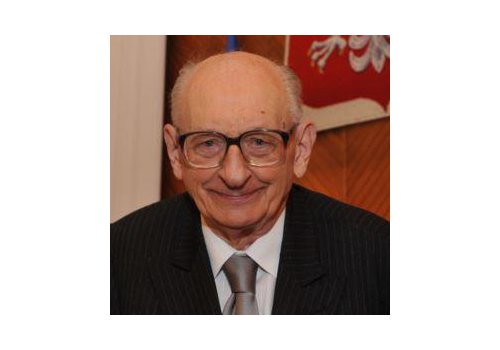Władysław Bartoszewski died at the age of 93. He was a Polish politician, former Auschwitz concentration camp prisoner, the Second World War Resistance fighter, participant of the Warsaw Uprising. After 1989 he was a diplomat, twice the Minister of Foreign Affairs, he held number of public posts in Poland. Recently he was the Prime Minister’s plenipotentiary for international dialogue. He supported the creation and activity of the ENRS.
Władysław Bartoszewski was born in Warsaw on 19 February 1922. In September 1939 he took part in the civil defense of Warsaw, and from 22 September 1940 he was in Auschwitz concentration camp. Due to actions undertaken by the Polish Red Cross, he was released from Auschwitz on 8 April 1941. Starting from 1 August 1944, Bartoszewski participated in the Warsaw Uprising. He was also a member of Żegota, a resistance organisation, which helped Jews. In the 1960s, Bartoszewski was awarded the diploma of the Righteous Among the Nations by Yad Vashem for his aid to Jews during the war.
After the war, Bartoszewski was falsely accused of being a spy and arrested, first in 1946, then in 1949; released in August 1954. In the 70s he was forbidden to publish his works in Poland (until autumn 1974) and was a victim to other repressions such as searches or denials of passport. He was engaged in many opposition activities and in January 1976, as one of the first, Bartoszewski signed the letter of intellectualists protesting against the introduction of changes into the constitution of the People's Republic of Poland. He worked for Radio Free Europe. Since 1978 he took part in establishing the Society for Educational Courses and he was lecturing at the "Flying University". Member of Solidarity movement. Arrested after the announcement of the martial law on 13 December and released on 28 April 1982 due to the support from intellectual communities from Poland and from abroad.
After 1989 he held a number of public functions in Polish politics and diplomacy: from September 1990 to March 1995 he was the Ambassador of the Polish Republic in Austria and the Minister of Foreign Affairs in 1995 and 2000. Since 2001 he was the Prime Minister’s plenipotentiary for international dialogue.
He was the chairperson of the International Council of the National Auschwitz Museum and council member of the Auschwitz-Birkenau Foundation.
For majority of Poles he was one of the biggest authorities, a person of indisputable moral and ethical values.
